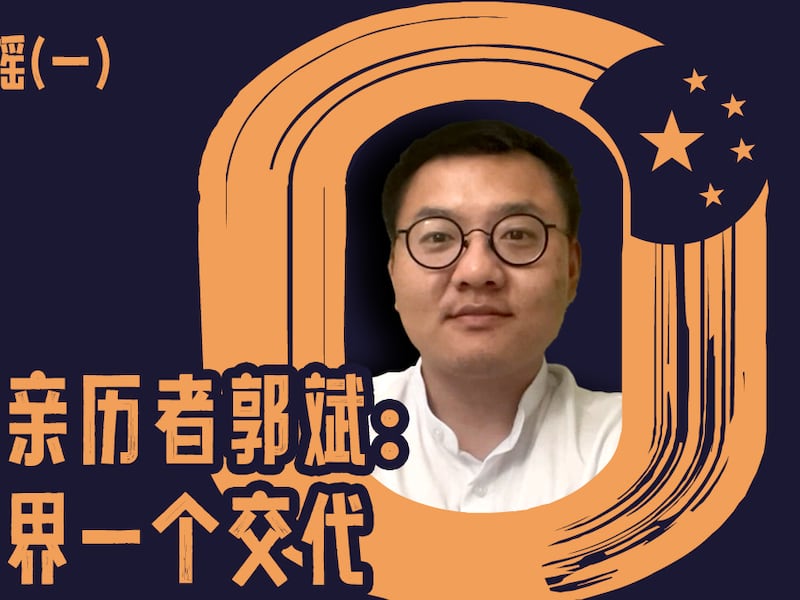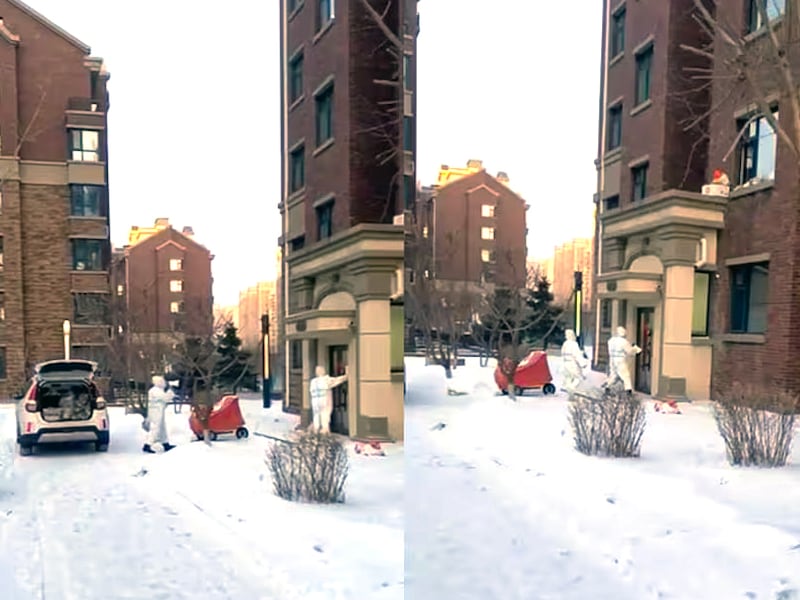At the 20th party congress in October 2022, ruling Chinese Communist Party leader Xi Jinping made it clear to the country that his hugely unpopular zero-COVID restrictions, including grueling lockdowns and the mass testing, tracking and quarantining of citizens, would remain in place for the foreseeable future.
Just a few weeks later, young people holding up blank sheets of paper started gathering in their thousands in public places and university campuses across China, sparked by a fatal lockdown fire in Xinjiang’s regional capital Urumqi, calling on Xi to step down and amid growing calls for pandemic restrictions to end.
Within days, a new policy had been announced, and authorities across the country began abandoning Xi’s pet policy, lifting quarantine requirements and travel bans in a bid to rescue the country’s flagging economy.
Two years after the easing of restrictions, many who were there still have vivid memories of being sealed up in their apartments, and of the wave of COVID-19 infections and deaths that ripped through the country once restrictions were lifted.
Guo Bin was living at his parents' home in the northeastern city of Changchun in 2020, when the COVID-19 pandemic emerged in Wuhan and spread around the country and to the rest of the world.

His father wasn’t allowed to leave the factory where he worked, while Guo and his mother were barricaded into their alleyway by police and local unemployed youths pressed into service to enforce isolation orders.
Guo and his mother were left to get by on potatoes and cabbage, while they heard of elderly people who lived alone without internet access starving to death that winter.
Their home province of Jilin was locked down for another month in the winter of 2021, just in time for Lunar New Year, he said.
“I was depressed, in such a low mood,” Guo recalled of that time, drawing parallels with the Mao era of mass social controls. “I was exposed to propaganda every day that was similar to the Cultural Revolution.”
“I was trapped in a few dozen square meters with no access to fresh air, freedom of movement or communication with the outside,” he said. “It wasn’t like being in prison; it was a prison.”
Mask orders for prisoners
Citizen journalist Fang Bin, who served three years in jail after blowing the whistle on the extent of the initial COVID-19 outbreak in Wuhan in early 2020, endured strict restrictions in prison, too.
“In prison, you had to wear a mask 24 hours a day,” Fang said. “You weren’t allowed to take it off even to sleep.”
“Anyone not wearing one would be forced to stand for three hours every day.”
RELATED STORIES
China loosens COVID restrictions in wake of anti-lockdown protests
Shanghai lockdown leaves hundreds stranded, wipes ‘billions’ from economy
Bodies left in homes as funeral parlors seek extra staff amid COVID-19 onslaught
Former Inner Mongolia official Du Wen said the mask orders didn’t always protect prisoners.
“A lot of people around us were dying, but the authorities wouldn’t admit it was COVID-19,” Du told RFA Mandarin in a recent interview. “Nobody dared to admit it.”
“At one point, 350 people in the Hohhot No. 2 Prison had a fever, but they still didn’t admit it was COVID,” Du said. “Because if they did, everyone from the prison bureau to the director to the prison guards would be sanctioned [under the zero-COVID policy].”
“Some people died because of this, and they said it was tuberculosis.”
Waves of deaths
When restrictions were eventually lifted, the timing meant that the newly emerged Omicron variant of COVID-19 ripped through the population, causing huge waves of deaths that have never been confirmed or fully reported, according to anecdotal evidence from funeral parlors and social statistics.
At the peak of the wave, mortuaries and funeral homes in Beijing were overwhelmed, with a weeks-long backlog of bodies awaiting cremation.

Bodies piled up in hospitals and in people’s homes awaiting cremation across China, as funeral homes recruited more staff to transport the dead.
Overseas researchers estimated that cases peaked at 4.8 million a day with 62 million infections predicted across the Lunar New Year holiday of 2023.
Fang Bin remembers that time well.
“I was in the Jiang’an District Detention Center, and masks were no longer being worn, and everyone was infected,” Fang said. “More than 1,000 people in the detention center were infected.”
Guo, who has since fled the country, said China should learn the lesson that cover-ups never help an emerging public health crisis.
“Politics always comes first, rather than human life,” he said. “I hope we can all remember these ridiculous, absurd, painful, sad and random stories, and the suffering we have been through as a nation.”
He said if the government had listened to whistleblowers like Wuhan doctor Li Wenliang instead of suppressing them, the outcome could have been very different.
“We owe the world an explanation,” Guo said. “An apology, or at least some self-reflection.”
Translated by Luisetta Mudie. Edited by Roseanne Gerin.
